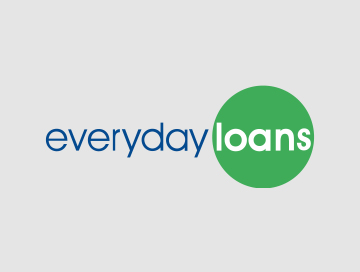Loans jargon-busting: Important terms explained easily
There’s a lot to know where money is concerned! Lending is full of complicated financial terms and it can be easy to feel a little overwhelmed by the jargon thrown your way. With that in mind, we’re taking a moment to break down key terms and phrases that are important to know and understand.
This will be a simple list to scroll through, so feel free to search for terms you’re particularly interested in.
Loans
A basic term, but important nonetheless. A loan refers to the process wherein a lender – the person providing money – offers an advance of a certain amount to another person or group. The recipient is known as the borrower.
Loans are usually provided over a set period of time and tend to include an interest rate on repayment – another term we’ll cover below.
Secured loans
A secured loan refers to a loan that involves the use of assets as a ‘security’ for the amount being borrowed. In most cases, a secured loan will use property, such as your home as collateral. These kinds of loans are often referred to as ‘homeowner loans’.
Generally speaking, secured loans are used when a borrower wishes to take out a large amount – think around £15,000 or more in the UK. For borrowers requesting large amounts of money, unsecured loans are usually not available. This is partly due to the increased risk for a lender for an unsecured loan compared to a secured loan.
In most cases, a secured loan will still involve the borrower meeting other criteria set by the lender. These criteria can vary.
Personal loan
Personal loans are sometimes also referred to as unsecured loans. Compared to the secured loan described above, a personal or unsecured loan is one that is taken out by a borrower and repaid over an agreed period.
Personal loans can be provided by a number of organisations including banks and private lenders. All personal loans are required to be covered by the legal terms laid out in the Consumer Credit Act.
With these kinds of loans, the borrower requests a fixed amount of money and agrees to a repayment period and interest rate on repayments. The money is provided to them if they meet the lender’s criteria and are subsequently accepted for the loan.
The amount of money available in personal loans will vary from lender to lender. The personal circumstances of the borrower, including details such as their credit score, can also affect the details of the loan.
Repayment periods can vary for personal loans. A loan may be arranged and offered on a repayment schedule as small as six months or may involve regular repayments over several years.
Debt consolidation
It’s common for people to have several different repayments to manage at one time. Managing different debts can be difficult and, in some cases, can involve high repayments for interest and fees .
Debt consolidation is a process where a person takes out one large loan to repay all their other sources of debt. This leaves them with a single repayment to make at each agreed time – usually once a month.
Debt consolidation is usually done for one (or both) of two reasons: to simplify the management of repayments, and to lower the total monthly repayments required through a lower interest rate. Arranging a longer repayment period can also be a relevant benefit, but it may mean you ultimately pay more in interest and are in debt for a longer period of time.
Debt consolidation, or a debt consolidation loan, is also sometimes referred to simply as a consolidation loan.
APR
APR is a very common term that is important to understand if you’re considering or managing loans of some kind. APR stands for ‘Annual Repayment Rate’ and is simply the total cost of credit over one year for the loan in question. In the UK, it’s a legal requirement for lenders to clearly show the APR for a given loan to their customers.
Representative APR
In most cases, the amount of interest you pay on a loan will vary. Factors that affect this can include your credit score, details like employment status, the type of loan you are applying for, and the final decision of the lender providing it.
Representative APR is designed to help borrowers make good decisions about a loan before they commit. In most loan advertising and on lenders' websites, you will be shown a ‘representative APR’ to help you make a comparison more easily.
Representative APR figures are required by law to be a fair average for at least 51% of successful applicants to a lender’s loan service. This helps you to have faith in the level of accuracy in the figure. For example, if a representative APR is shown as 5%, you know that over half of applicants to that lender’s service will be repaid at that rate.
Payment holiday
A payment holiday refers to a lender allowing a borrower to take a break from scheduled repayments of a loan for an agreed time. An example of a payment holiday might be a person having monthly repayments over the course of 12 months, with a one-month payment holiday occurring at the six-month point.
Payment holidays are not offered by every lender. They are intended as a way to help borrowers manage their repayments as their situation changes. Please note that, at Everyday Loans, we do not offer this as part of our loan product, but if you are ever struggling to make your repayments then please get in touch with us and we will do our best to help you.
Financial Conduct Authority (FCA)
The FCA is a key organisation in the UK finance market. It is required by law that any lender or broker must be authorised by the FCA if they are to offer a loans service.
It’s important to be sure that any lender you are considering getting a loan from has registered appropriately with the FCA. To help protect yourself from fraud, is it advisable to check the details of any lender that you are considering borrowing from – you can do this via the FCA register, found here: https://register.fca.org.uk/s/
We hope this helps!
These terms are important and understanding their meaning is useful to help you know where you stand. Be sure to bookmark this page so that you can return to it if you’re ever unsure about a specific phrase or point of information.
If the Everyday Loans team can help you with a loan to meet your current financial requirements, please be sure to stop by our website’s homepage and see what we can do to help.



